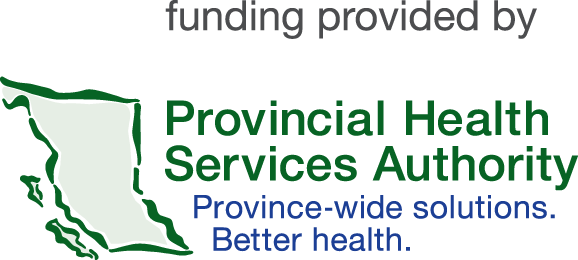The main objective of the BounceBack® telephone coaching sessions is to help individuals get the most out of the program by providing them with educational and motivational support. Individual coaching sessions are shorter (usually 20-30 minutes), compared to hour-long counselling sessions. This shorter timeframe does not give coaches enough time to get into the details of the individuals’ experiences. Rather, coaches guide participants in working through the program materials, checking in with them, answering their questions, and helping them to problem-solve if they have trouble applying what they’re learning.
All coaches complete an intensive training program to deliver CBT. BounceBack® coaches are trained and overseen by registered clinical psychologists, who provide clinical support as well as reinforce their CBT knowledge and skill development once formal training is complete.
Every telephone coaching session begins with a mood rating and a routine risk assessment by the coach. BounceBack® coaches are required to contact clinical psychologists at any time an issue arises that would put the participant at risk of harming themselves or others.
As the primary care provider, you remain in control of the participants care. Family doctors and nurse practitioners who refer individuals to the BounceBack® program will be notified if risk is identified during any of the routine assessments. They will also receive progress reports detailing the work completed, the workbooks used, and the final outcomes.
The BounceBack® program usually involves three to six telephone sessions with a coach. Individuals will receive an introduction to the program with their coach before their first coaching session. The first session lasts about 45 minutes and includes an assessment to ensure program eligibility. After the first call, the participant is sent a package of materials, which includes a program information sheet and introductory workbooks. Subsequent calls are 20-30 minutes in length, with the coach providing additional workbooks that best support the individuals’ current needs. The program takes anywhere from three to six months to complete.
Yes. The use of mental health medications or involvement in other mental health support programs does not preclude individuals from participating in BounceBack®. You decide if BounceBack® is a useful addition to, or replacement for, other treatments or services you’re offering.
Yes. Family physicians who consult with a BounceBack® Coach as part of collaborative care planning for a patient with complex needs may bill the Community Patient Conferencing fee (Fee Code 14016).
BounceBack® coaches work in partnership with the participant’s primary referrer should a participant require care that is beyond the program’s reach. Coaches ensure that referrers are updated on the participants’ progress and notified if any level of risk is detected at any point during the sessions. Based on the level of risk that is detected, a primary referrer may be asked to follow-up with the participant. A coach will also notify the primary referrer if a participant in no longer interested in participating in BounceBack®, is no longer eligible for the program, or is unreachable. In such cases, we rely on the primary referrer to follow-up with the individual to explore alternative programs and resources that may be a better fit.
BounceBack® coaches will work with school counsellor referrers to create a Summer Transition Plan for any students that will continue to participate in the program over the summer. This will ensure that an alternative service provider takes over the responsibility and oversight of the participant. Coaches will work in partnership with students and counsellors to determine if the participant has an existing relationship with a primary care provider (i.e. physician, nurse practitioner, or psychiatrist). If not, we ask you to help identify another service provider within your region who can take on this responsibility.
All referrals made between March-June may require a summer transition plan, depending on how many sessions the student would like.
Check out the FAQ pages on the adult and youth website pages. You can also contact us for more information.








 Donate Now
Donate Now



